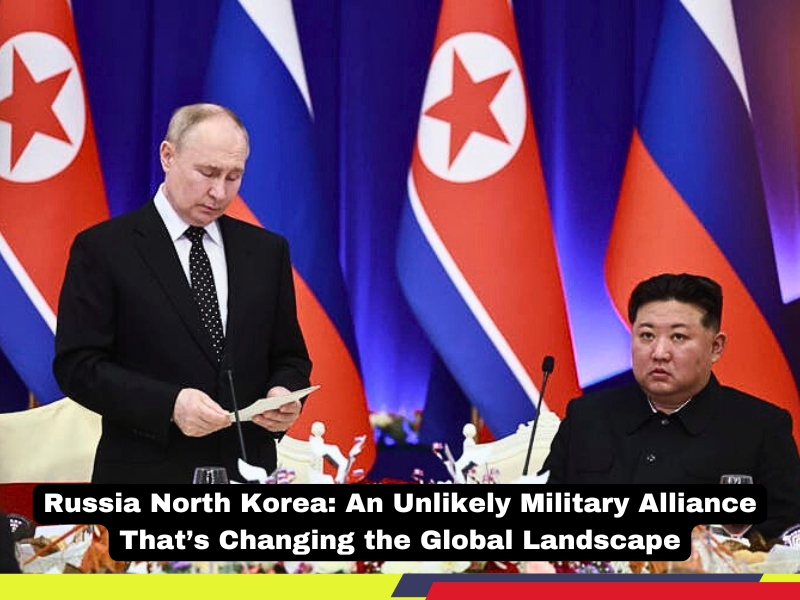In an unexpected twist, Russia and North Korea are solidifying their alliance in a way that’s shifting longstanding geopolitical dynamics. Just a few years ago, Russian President Vladimir Putin was sending North Korean laborers back to Pyongyang as punishment for North Korea’s nuclear ambitions. Fast forward to today, and the same region in Russia is now reportedly hosting North Korean soldiers, believed to be there to support the Russian war effort in Ukraine. How did we get here, and what does this mean for global stability?
A Complete 180 in Russia-North Korea Relations
Since Russia’s invasion of Ukraine, Putin’s stance has shifted dramatically. Where Russia once joined forces with the U.S. and China to restrain North Korea’s nuclear development, it now embraces Kim Jong-un’s regime, welcoming an influx of artillery, anti-tank rockets, and possibly even soldiers from North Korea. This collaboration marks a new chapter, resurrecting a Cold War-era bond between the two nations and signaling Russia’s deepening isolation from the West.
The transformation is startling. Following its 2017 decision to back U.N. sanctions against Pyongyang, Russia had significantly scaled down economic interactions with North Korea. However, the urgency of the Ukraine conflict—and the toll it’s taken on Russia’s resources—seems to have overridden those former restrictions.
Why North Korea? Understanding Russia’s Strategy
As the war drags on, Putin’s strategic calculations have narrowed. The traditional Russian approach of balancing relationships with the West to maintain global stability is no longer feasible. Instead, Putin has doubled down on a survival-first strategy, leaning into relationships with China, North Korea, and even Iran to fill critical gaps in supplies and manpower.
North Korea, with its arsenal of artillery and a seemingly endless supply of disciplined soldiers, has become a valuable ally. Since last year, North Korean ammunition has reportedly been showing up in Ukrainian battle zones, and thousands of North Korean soldiers have now arrived in Russia, sparking questions about their intended role in the conflict.
A New Geopolitical Landscape
For North Korea, this alliance with Russia serves multiple purposes. The country can test its weaponry in an active war zone, gaining insights into its efficacy against advanced Western defenses—a potential advantage in its ongoing tension with South Korea. Additionally, Russia’s pivot away from its previous stance on North Korean nuclear armament signifies a tacit endorsement of Pyongyang’s arsenal, potentially opening doors for further military cooperation.
For the West, this evolving alliance adds a layer of complexity to an already volatile situation. Where once Russia was part of the global coalition aiming to contain North Korea’s nuclear ambitions, it is now an active supporter of the regime.
What’s Next for the Russia-North Korea Alliance?
In June, Putin made his first trip to Pyongyang in nearly 25 years, officially resurrecting their old military treaty. During this visit, he edged closer than ever to recognizing North Korea as a nuclear state—a goal Kim Jong-un has long coveted. This mutual recognition marks a turning point, not just for the two countries, but for international diplomacy as a whole.
The arrival of North Korean troops in Russia underlines the difficult reality of a conflict that has left Russia stretched thin. As Putin continues to sidestep a full mobilization at home, he appears increasingly willing to take on foreign manpower, further cementing this surprising alliance.
Final Thoughts
As the world watches these two unconventional allies strengthen their ties, the message is clear: Russia is now prioritizing survival over global cooperation. For those of us who grew up in a post-Cold War world, this emerging alliance feels like a reminder that history, no matter how seemingly buried, has a way of returning. The implications for arms control, military strategy, and diplomacy are profound—and perhaps, only just beginning.




